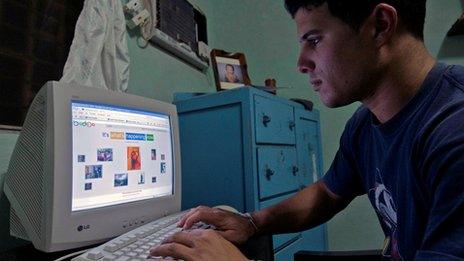Cuban internet delivered weekly by hand
- Published
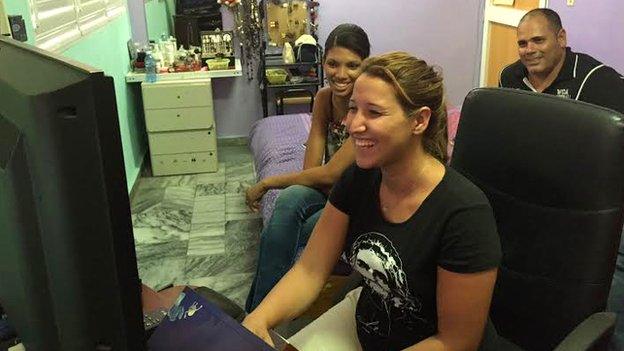
The Paquete is downloaded by many Cubans every week and even shared among friends
Cuba is a land in many ways cut off from the rest of the world. For one thing, general public use of the internet is restricted and most people don't have access to a connection.
But many have found a surprising way to get their favourite web content in spite of restrictions.
Much of the largely offline nation simply receives internet "deliveries" - by hand.
Fifty-six years of communist rule and the US trade embargo have inspired some novel solutions to everyday frustrations and "El Paquete Semanal", the Weekly Package, is just one.
The Paquete is an alternative to the web in a country where, according to some estimates, fewer than 5% of homes are connected.
It consists of a terabyte of data bringing together the latest music, Hollywood movies, TV series, mobile phone apps, magazines and even a classifieds section similar to Gumtree or Craigslist.
Every week, unidentified curators compile a selection of content and deliver it via a complex network of hundreds of distributors who, much like old-fashioned newspaper delivery boys, bring the Paquete to the door of its subscribers.
It's all carried out outside any legal framework in Cuba - and with seemingly little regard for international copyright law.
Internet ready
The Paquete has satiated the desires of young people in particular, who for years have been armed with home computers, laptops, tablets and smartphones in anticipation of the day when the Cuban government makes internet access more widely available.
In the meantime, the Paquete is filling the void for regular users like Ana Lauren, a 24 year-old journalist from Havana.
"The Paquete Semanal is the accessible form to get videos, music, soap-operas, everything. You can get whatever you want in El Paquete," she says.
Ana, a big fan of documentaries in particular, says she looks forward to Mondays when the latest edition of the Paquete is delivered to her door.
"Every Monday a young man comes here to my house with a portable hard drive and copies the Paquete to my computer," Ana says as she explains how users choose what bits of the Paquete to keep.
"I can copy whatever I want. If I don't want to copy music this week I don't have to. I only copy the things and shows that I want to use this week."
She adds that she pays between one and two US dollars for the Paquete each week, depending on how much she chooses to copy to her computer.
New media
The Paquete is so popular in Cuba that it has paved the way for the creation and expansion of new media ventures that exist solely for use by its subscribers.
Antoinette Duquesne is a journalist who writes for one of Cuba's leading cultural publications, Vistar. She says that while the magazine has a site on the internet where it is read by expat Cubans, most of its audience in Cuba accesses the magazine via the PDF version published in the Paquete.
"We exist on the internet but the Paquete Semanal has such a wide range of distributors and it's sold all across the country," she comments. "So, this is the best way for us to connect with our audience."
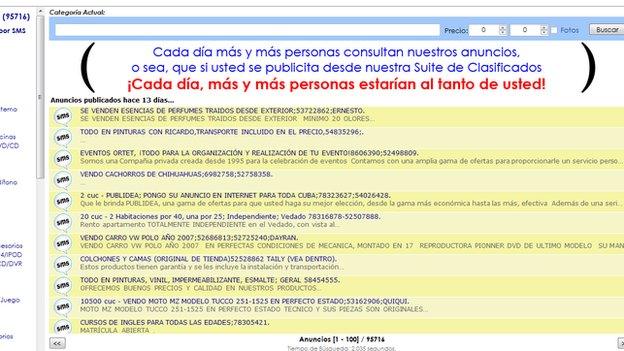
There is even a dedicated classified ads service on the Paquete
And, more important still, says Antoinette, are the new job opportunities the Paquete has created for journalists like her.
"The Paquete is opening up possibilities for people in the media like me as it gives us the opportunity to do things you couldn't even imagine doing before, when if you wanted to work in media the only option was the official media," Antoinette explains.
Business case
What's more, the advertising firm ETres offers Cuban businesses such as restaurants, photographers and beauty salons the opportunity to reach their prospective clients for a fee via the Paquete. Businesses like these have been allowed to operate legally in Cuba since 2011 when laws barring private enterprise were relaxed.
The firm makes the ads and gets them inserted in the Paquete at the end of programmes featured on it.
Despite its success and the loyalty of its many subscribers, the Paquete's days in its current form may be numbered now that the Cuban authorities have begun to loosen their tight controls over internet access.
There's certainly interest from major US internet firms like Google when it comes to helping Cuba address connectivity issues.
Regardless, the Paquete will always be remembered for having provided a solution to a critical problem in Cuba when none other existed.
BBC Monitoring's Emilio San Pedro travelled to Cuba for the BBC World Service's Fifth Floor programme. He is presenting a series of reports that will air every week on the programme starting Friday 7th August.
- Published16 March 2015
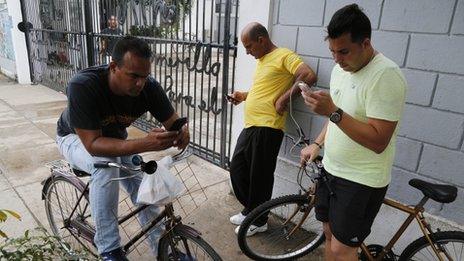
- Published15 April 2014
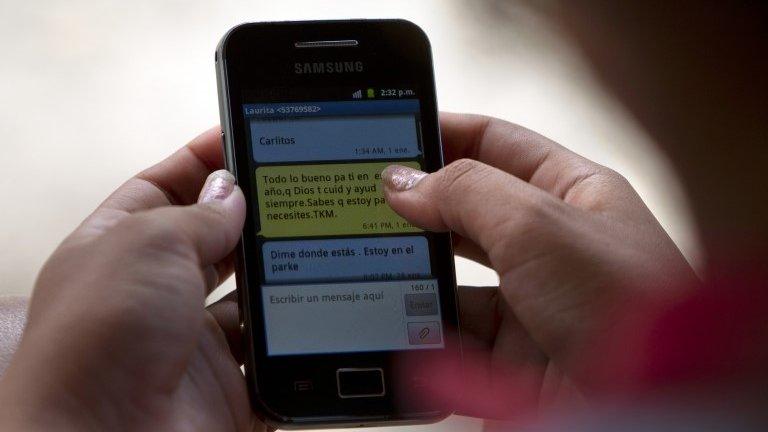
- Published31 May 2013
